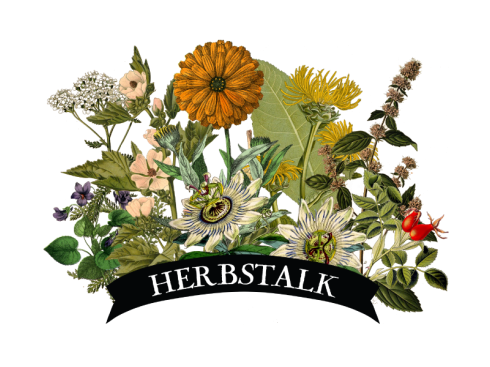|
by Jenny Hauf of Muddy River Herbals The snow doesn’t give a soft white damn whom it touches. —E.E. Cummings Snow. If you live anywhere close to Boston it’s everywhere. It surrounds your car, hems you in as you walk the sidewalks, and is piled so high that you need to hurry through the street, dodging drivers and the soupy ridges of slush. City snow can be less than ideal. Commutes are awful. The roadsides, hardly quaint to begin with, are filthy with the grey-black colors of exhaust. And, of course, storm cleanup takes a lot of work; I’ve been wishing that I’d taken a ribbon and measured my household’s biceps at the beginning of January because they all must have grown a few quarter inches. That said, I love snow. I rely on it, fall into it, shovel it. I welcomed news of the first blizzard, sparkling like myself at seven and sighing with relief. And while I didn’t quite dance around in anticipation of the latest storm currently whipping around my windows, it’s pretty enchanting to be living in such an outrageously white world. I’m a stranger in a strange land where every edge is softened, each roof bright. I think of Mark Helprin’s brilliant “Winter’s Tale,” where New York City is buried in a mythical quilt of snow and bands play on frozen lakes. My business partner keeps saying that she feels as if she’s in Narnia, like she could turn a corner and run into the White Witch. How often does Jamaica Plain feel like a fairy tale? Aside from bringing about the wonder of experiencing a world suddenly catalogued under magical realism, snow is essential in assuring many tangible, necessary things: a verdant spring (by way of its slaking thaws), habitat for otherwise vulnerable animals, and insulation for the trees, shrubs, and perennials throughout New England. I’m especially impressed by these insulative qualities. Freshly fallen snow is up to 95% air—the greatest material for retaining heat. The blanket of snow and all the air therein shelters the ground from sudden temperature swings that can cause plants of all kinds harsh and even fatal damage. Think of all the dandelions, all the cherry trees, all the tulips that will bloom gloriously this spring thanks to their snug covering of crystals. As a grower, snow makes me want to sing, and not only because of the protection it offers crops. It covers the earth where I’ll plant in spring, granting a free mulch that will keep winter weeds from growing and erosion at bay. Snow also brings a gift of fertility to gardeners and farmers—nitrogen, falling in Cummings’s “soft white damns” from the sky, alighting on our beds and waiting to seep into the soil in spring. If the snow melts slowly it can act as a slow-release fertilizer, giving the earth small jolts of nitrogen that waking plants can take up readily. While the snow, especially the deep drifts that are currently rearranging themselves in the latest gusts, present great challenges to animals such as squirrels (seeing as their scattered nut caches are obscured and inaccessible), it serves as a boon to others. In snow caves, bear mothers slowly beat their hearts and nurse their cubs. Microbes and tiny mammals, like voles and weasels, set up house in the subnivean zone, the layer of snow warmed by the captured summer warmth radiating from earth that is sometimes tens of degrees warmer than the outside air temperature. Adapted creatures live quiet lives in this world’s crystalline tunnels, searching for food and traveling with little fear of predation. Above ground, coy wolves mate and hunt, quietly listening for the miniature sounds of rodent paws and diving, snout first, in an attempt to break into that buried world of small life. Barred owls are mating too, hoo-hooing at each other and stalking the rodents that dare to scamper across the snow’s surface. And then there are snow fleas—not fleas at all, but springtails—which leap around on warm days, eating blown leaves and broken branches and turning them back into available nutrients. Even if I wasn’t a grower in love with the tapestry of systems that sustains New England’s habitats, I’d still be enamored with snow. I devote poems to it and study it in snowshoes. I’m obsessed with the way it brings the decibels down, especially as it’s falling. Earlier this week I was out shoveling with my fiancé and his mom when he stopped. “It’s so still,” he said. And it was. The reality of quiet on the edge of the metropolis, so foreign, so deliciously rare, filled us as we paused, catching our breath while snow landed on us like butterflies. Our muscles ached and we longed for the hot comforts of tea and radiators, but our ears and minds were eased by the pure hush. Silent but for the sound of those soft things falling like angels from the sky, glassy, blue, and white, we stood there listening. Sources: A healthy snowfall offers a variety of environmental benefits Poor man’s fertilizer Life under the snow  After creating the medicinal herb program at Allandale Farm, Jenny is excited to be embarking on the first season of her own herb farm, Muddy River Herbals, with co-owner and grower Barbara Lenes. They are thrilled to be offering high quality, sustainably grown herbs to the people of eastern Massachusetts. For more information please visit their website or contact Jenny directly at muddyriverherbals(at)gmail(dot)com for ordering inquiries and herb availability. Comments are closed.
|
Archives
November 2023
Categories
All
|

 RSS Feed
RSS Feed